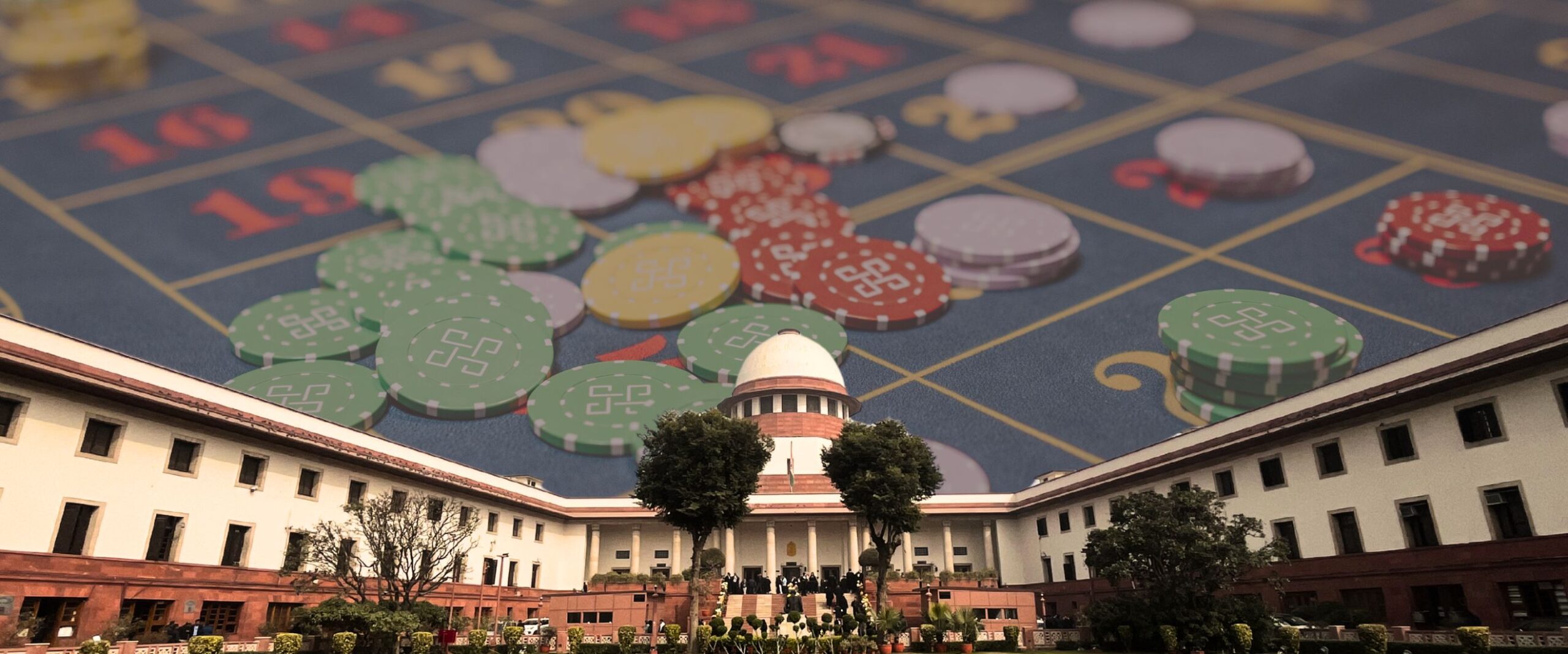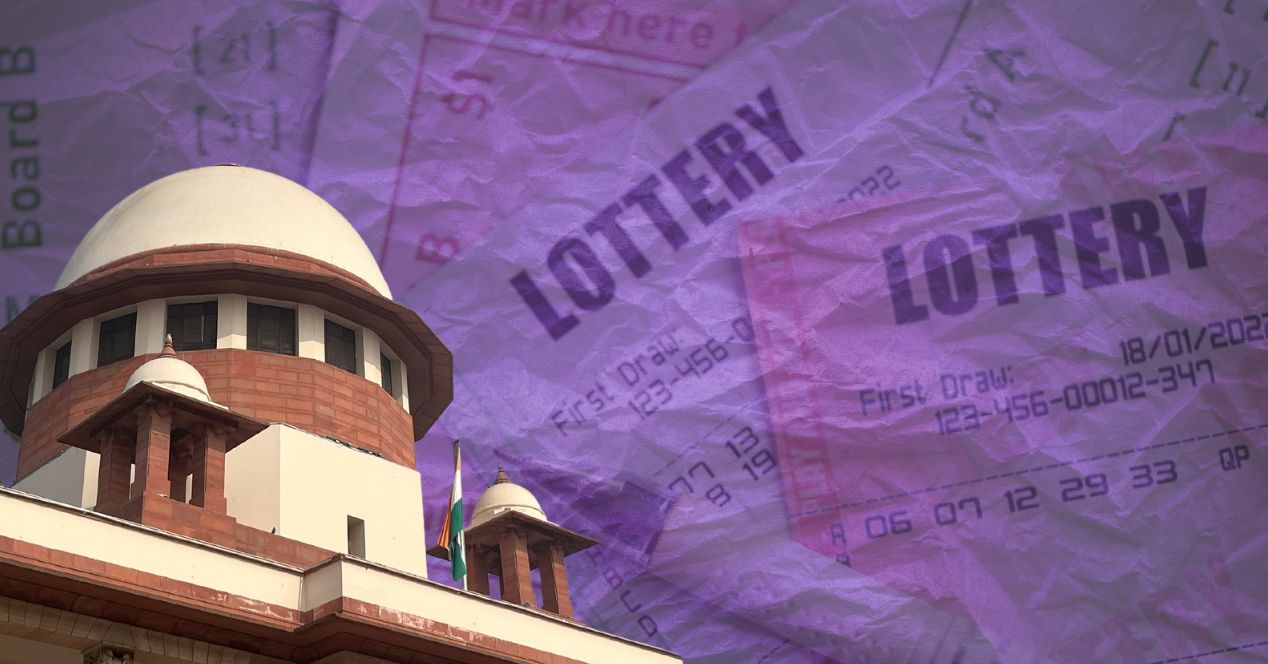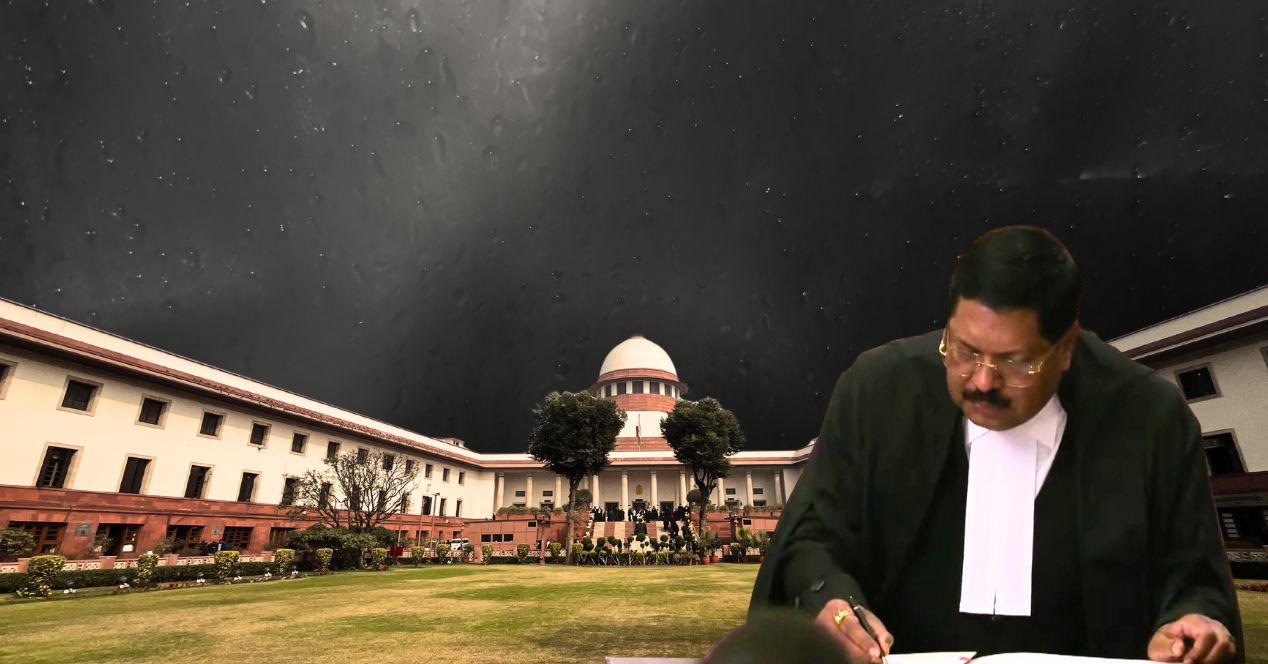Analysis
Skill or chance: Will the Supreme Court strike down the Real Money Gaming ban?
By taking the outright ban route, the new Union legislation collapses the tried-and-tested distinction respected by state regulations

The Promotion and Regulation of Online Gaming Act (PROGA) came into force on 1 October. The objective of the Act is to promote responsible online gaming while regulating the sector and prohibiting harmful online money games. By mandating a comprehensive ban on all online real money games (ORMGs), the legislation collapses the well-established legal distinction between games of skill and games of chance.
Petitions against the law have been filed in various High Courts. The petitioners include Head Digital Works (the parent company of real-money gaming platform A23), Clubboom 11 Sports and Entertainment Pvt. Ltd, Bagheera Carrom (OPC) Pvt. Ltd. and others. On 8 September, the Supreme Court consolidated all pending matters for joint hearing. The Bench of Justices J.B. Pardiwala and K.V. Viswanathan is expected to take up the matter for hearing after the Diwali vacation.
In advance of arguments being heard by the Supreme Court, we discuss three core issues at play:
- Does PROGA undermine the long-standing judicial distinction between games of skill and games of chance?
- Does the Union have legislative competence on a matter that has been traditionally considered a state subject?
- Do the provisions of PROGA satisfy the test of proportionality?
A longstanding judicial distinction
The distinction between skill (where the outcome depends on a player’s expertise) and chance (where luck predominates) has been repeatedly tested in Indian courts. The Supreme Court in State of Bombay v. R.M.D. Chamarbaugwala (1957) found that games in which skill predominates over chance cannot be treated as gambling. This came to be known as the “preponderance of skill” test in K.R. Lakshmanan v State of Tamil Nadu (1996). Several verdicts have relied on this formulation to hold games like rummy (State of Andhra Pradesh v K. Satyanarayana, 1967) and horse-race wagering (K.R. Lakshmanan) as games of skill.
Relying on this line of Supreme Court precedent, the Madras High Court —in All India Gaming Federation v State of Tamil Nadu (2023)—clarified that online rummy and online poker qualify as games of skill, and therefore fall within the right to trade and business under Article 19(1)(g) and Article 301 of the Constitution. Similarly, in All India Gaming Federation v State of Karnataka (2022), the Karnataka High Court struck down a legislation banning all forms of online gaming involving the risk of money. It reasoned that the ban violated the right to equality under Article 14, as it imposed an absolute embargo on all games of skill. In that verdict, Justice K.S. Dixit noted that:
“…the Amendment Act does not critically adjust the boundaries of the existing category of protected activities, i.e. games of skill with the unprotected acts of gambling. Instead, State has created a wholly new category of medium-based-regulation when change of medium per se does not alter the true nature & content of the games.”
The skill-chance distinction is supported by empirical and mathematical analyses. In 2023, the Indian Statistical Institute, Kolkata, found that success in rummy is significantly influenced by skill. The same year, researchers at the Indian Institute of Technology, Delhi, concluded that online card games demand a predominance of skill for consistent success.
Seen in this context, the definitions of “online game” and “online money game” under Sections 2(f) and 2(g) of PROGA explicitly negate the distinction between games of skill and games of chance. By virtue of these provisions and the unilateral ban established by Sections 5, 6 and 7 of PROGA, variants of games like poker and rummy would now be classified as ORMGs, defying the distinction that has persisted since 1957.
Union’s justification of legislative competence
From the reading of the text of the Act, it appears that the Union has justified its assumption of legislative competence for PROGA on multiple grounds. The justification might be based on four entries in the Union List: user harm and public health under Entry 52 (industries); proliferation of pervasive advertising under Entry 31 (wireless, broadcasting and other forms of communication); inconsistencies across state-level regulatory frameworks under Entry 42 (inter-state trade and commerce); and the participation of offshore jurisdictions in ways that circumvent domestic law under Entry 41 (trade and commerce with foreign countries, and import and export across customs frontiers).
The assumption of legislative competence on the grounds of public interest is reflected in the Act’s text. However, it is worth recalling that in a Lok Sabha reply on 26 March 2025, IT Minister Ashwini Vaishnaw stated that ‘betting and gambling’ are state subjects, falling under Entry 34 of the State List. He had also replied that ‘police’ and ‘public order’ are state subjects, making states and Union Territories primarily responsible for preventing, detecting and prosecuting crimes related to illegal betting and gambling.
Aspects of regulating online gaming are already captured under various Union laws. Particularly: the Information Technology Act, 2000, through its provisions on intermediary liability, online harms and content moderation; the Consumer Protection Act, 2019, which addresses unfair trade practices and deceptive advertising; and the Digital Personal Data Protection Act, 2023, which provides for data protection and cybersecurity safeguards to mitigate risks posed by offshore or insecure platforms.
Does PROGA merely consolidate these existing statutory frameworks into a unified special legislation? More importantly, can a consolidation effort alone justify the assumption of legislative competence?
Healthy evolution of state-level regulation
Before the introduction of PROGA, the regulatory landscape for online gaming in India was evolving healthily at the state level, reflecting diverse approaches to skill games, betting and licensing. Tamil Nadu had enacted the Prohibition of Online Gambling and Regulation of Online Games Act, 2022, which placed specific restrictions on games of skill. This legislation, along with the 2025 Regulations promulgated under it, had been upheld by the Madras High Court in Play Games 24×7 Private Limited v State of Tamil Nadu in June 2025.
There, a Division Bench had affirmed the state’s legislative competence to implement regulatory measures for OMRGs, including restrictions on playing hours and mandatory age verification. The ruling was based on the state’s ability to enact laws governing online games by invoking Entries 6 (public health and sanitation) and 26 (trade and commerce within the state) under the State List.
While some states like Uttar Pradesh have amended the Public Gambling Act, 1867, others like Nagaland, Sikkim and Meghalaya have enacted fresh legislation to introduce licensing regimes for online skill games. Chhattisgarh and Haryana provide exemptions for games of skill while banning betting. In April this year, Karnataka formed a committee for drafting a more nuanced regulatory law based on a ‘whitelisting’ framework for legitimate operators. All this suggests a pattern of state-level experimentation and regulatory innovation.
Concerns of creeping centralisation
The doctrine of pith and substance stipulates that the true nature and character of legislation must be ascertained to determine its validity. If, in substance, a law falls within the legislative competence of a state, incidental encroachments upon subjects in the Union List do not render it invalid. Applying it to the context of online gaming, the principle implies that the state laws cannot be displaced solely on the ground that the Union invokes broadly worded entries in the Union List.
The Union has justified PROGA on the grounds of public interest, based on the elements of public health, consumer safety, public morality and financial sovereignty. However, the online gaming industry has not been formally declared as an ‘Industry of Public Interest’ under Entry 52, as mandated under Schedule 7 of the Constitution. A mere reference to public interest in the non-operative part of the statute does not meet the mandate of a declaration. Furthermore, even if the Union decides to amend PROGA to declare ORMGs as detrimental to public interest—similar to declarations in the Tea Act, 1953 or the Rubber Act, 1947—the concern of public health being under Entry 6 of the State List cannot be entirely overlooked.
On the other elements of the ‘public interest’ justification in PROGA, consumer safety in the wider context of consumer protection is already an occupied field by the Union, and financial sovereignty is covered under Entry 36 of the Union list. ‘Public morality’, however, is not explicitly enumerated in any legislative lists. Courts have consistently cautioned against using morality as a carte blanche for state intervention, emphasising in Navtej Singh Johar v Union of India (2018) that constitutional morality must outweigh public morality, even if it is the majoritarian view.
Further, ‘betting and gambling’ is explicitly a state subject under Entry 34 of the State List. The question is whether Parliament can justify regulating an industry that falls squarely under the State List by invoking general Union List entries. If this precedent is allowed, it can raise concerns of creeping centralisation in other domains where the Constitution explicitly grants the states legislative exclusivity.
If digital connectivity is used as a justification for Union intervention, it could open the floodgates for laws being enacted across multiple sectors such as healthcare, education, and entertainment, merely because these sectors operate through online platforms. Such a precedent would undermine the federal spirit of the Constitution by eroding the autonomy of states.
Does PROGA pass the proportionality test?
The doctrine of proportionality is an essential tool for ensuring that the State’s actions are fair and reasonable. This principle is designed to prevent the State from taking actions that are more severe than necessary to achieve its objectives. In Modern Dental College v State of Madhya Pradesh (2016), the Court endorsed a four-prong proportionality test to determine whether a restriction is permissible: purpose, suitability, necessity and proportionality stricto sensu.
The element of suitability or legitimate goal requires that the measure be rationally connected to its objective. PROGA seeks to prevent gambling-related harm, protect consumer welfare and address addiction. However, the failure to distinguish between skill and chance renders its approach overinclusive. Games like online rummy, fantasy sports, and chess, which rely predominantly on skill, end up banned solely because they involve real money. Such a measure lacks a rational nexus to its stated objectives, as the harm associated with gambling arises not from monetary stakes per se but from games of pure chance and unregulated betting.
The third prong of necessity may be determined through the “least intrusive test” laid out in Modern Dental College. This requires that no less restrictive alternative could achieve the same goal. In the case of PROGA’s ban on ORMGs, the answer regarding alternatives is clear—the Tamil Nadu model. Instead of an outright ban, the Union could have implemented licensing, age verification, time limits and responsible gaming frameworks.
One of the grounds invoked by the Union to prohibit ORMGs is the harm they pose to public health. The Tamil Nadu legislation takes a similar approach but it prohibits “online gambling” and regulates “online games” while keeping public health and welfare in focus. This approach mitigates harm while preserving the economic rights of legitimate businesses, which makes it clearer why the Union’s blanket ban fails the necessity test.
The fourth element of proportionality stricto sensu balances the benefits of State action against its adverse effects on individual rights. The economic and constitutional cost of PROGA’s prohibitions is substantial: it infringes on Article 19(1)(g) (right to trade), Article 14 (equality before law) and Article 301 (freedom of trade and commerce). The inclusion of “social games” and “e-sports” as legitimate and permissible categories under PROGA further exposes the internal inconsistency of the legislation. Both “social games” and “e-sports” depend on digital interaction and skill, yet they are exempted solely because they do not involve real-money stakes.
If the concern is addiction or harm, the exclusion of e-sports undermines the public health rationale; if the concern is wagering, the blanket ban on skill-based games like rummy or fantasy sports becomes logically inconsistent. This selective permissibility fails both the equality and proportionality tests, suggesting that the legislation targets monetary aspects rather than actual harm.
***
The Supreme Court’s decision on PROGA will be pivotal in defining the boundaries of skill and chance, the limits of Union legislative competence and the principles of proportionality in regulating online gaming. The ruling has the potential to not only determine the fate of RMGs in India but also to provide an important clarification on the balance of legislative power between the Union and the states.
Dr. Sudhanshu Kumar is an Associate Professor, Harsha N is an Assistant Professor, and Aditi Pangotra is a Research Associate at NLSIU. The team is engaged in a funded research project on online gaming laws. The views expressed here are solely those of the authors and do not represent the views of NLSIU or the funding organisation.




